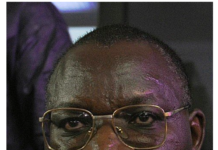At the end of a tripartite meeting between the Zambian and Rwandan Governments and the United Nations High Commission for Refugees (UNHCR) held in Kigali on March 24 and 25, 2015, the Zambian Home Affairs Deputy Minister, Col. Panji Kaunda, said that the Zambian Government might resort to expelling Rwandan refugees from its territory if they do not get the Rwandan Government passports that would allow them to stay legally on the Zambian soil.
You will recall that the UNHCR, under the instigation of the Rwandan Government and while ignoring negative opinions of international human rights organizations, decided to implement the cessation clause for Rwandan refugees effective on June 30, 2013.
At the time of the decision, Rwanda was and still remains in pole position of countries that are predatory of freedoms and fundamental rights of the human being. Some facts should be enough to convince any soul of goodwill to refrain from expelling Rwandan refugees wherever they are in the world. These refugees have fled a monster and today no one should force them to return to Rwanda while the ogre is still there and has even become fiercer than ever before.
Indeed, if one highlights the following sad record of President Paul Kagame and his regime, no one should deny the status of refugees to Rwandan nationals who are scattered worldwide and are both survivors and victims of a policy of exclusion and manhunt:
- The Mapping Report which was made public on October 1st, 2010, by the Office of the United Nations High Commissioner for human rights, considers that the crimes committed against Rwandan refugees in the Democratic Republic of Congo (DRC), mainly by the Rwandan army of President Kagame, could amount to genocide if they were brought before a judge.
- The investigations conducted by the Spanish judge Andreu Merelles also concluded that President Paul Kagame is the instigator of crimes of genocide and crimes against humanity committed against Rwandans and Congolese, in Rwanda and in the DRC between 1990 and 2002, which also took away the lives of six Spanish citizens and for which forty officers of the Rwandan army are wanted by the justice in Spain.
- The investigations conducted by Judge Jean-Louis Bruguière in France concluded that Paul Kagame was the main sponsor of the attack of April 6th, 1994, which is regarded as the trigger for the 1994 genocide in Rwanda, which killed the Heads of State of Rwanda and Burundi and their respective suites. Subsequently, President Kagame himself recognized it on the airwaves of the BBC.
- In Rwanda, the political space is fully locked out. Indeed, all political parties that are not affiliated to the Rwandan Patriotic Front, the ruling party, have been denied registration. Political opponents are being murdered or thrown in jail, while the lucky ones take the path of exile.
- The civil society is on its knees: journalists and human rights activists are purely and simply murdered or put in prison, while others are forced to leave the country.
- The regime of President Kagame is responsible for an organized hunt against its opponents abroad, where Kagame does not hesitate to send death squads. In 1996 in Kenya, he murdered his former Interior Minister, Seth Sendashonga. More recently in South Africa, his former Head of foreign intelligence, Col. Patrick Karegeya, suffered the same fate, while his former Army Chief of staff, Gen. Kayumba Nyamwasa, has escaped at least three assassination attempts.
Given such evidence, on behalf of the memory of millions of Rwandan and foreign victims of the barbarity of the Rwandan regime, the political party FDU-MN-INKUBIRI is calling upon Zambia to realize that the problem of Rwandan refugees is
more complex than what the sirens of Kigali hum and that it is an exceptional situation that requires exceptional solutions. No one should indeed ask a victim to beg alms to his executioner, unless perhaps one seeks to push that victim to commit suicide.
The political party FDU-MN-INKUBIRI remains confident that Zambia is fully aware of such a state of emergency and that it will not fail to come up with more durable solutions for Rwandan refugees, such as their local integration, as it indeed plans to do so for other categories of African refugees.
For this moment, any emergency measure should aim at provisionally suspending the implementation of the cessation clause of refugee status, an essential step towards local integration upon which Rwandan refugees may become eligible for another legal status, including the prospect of naturalization.
Done in Brussels, Belgium, on 30 March 2015
FDU National Movement Inkubiri
Jean de Dieu TULIKUMANA
Commissioner for Social Affairs and Refugees































































